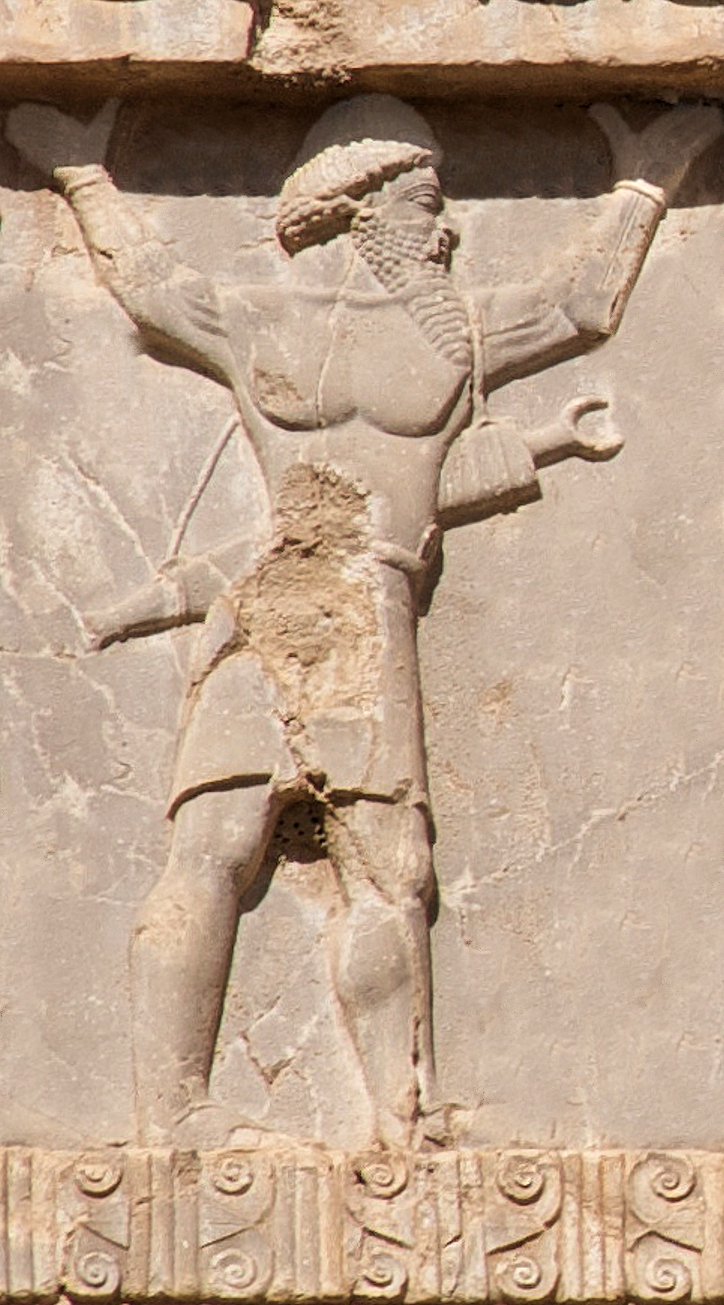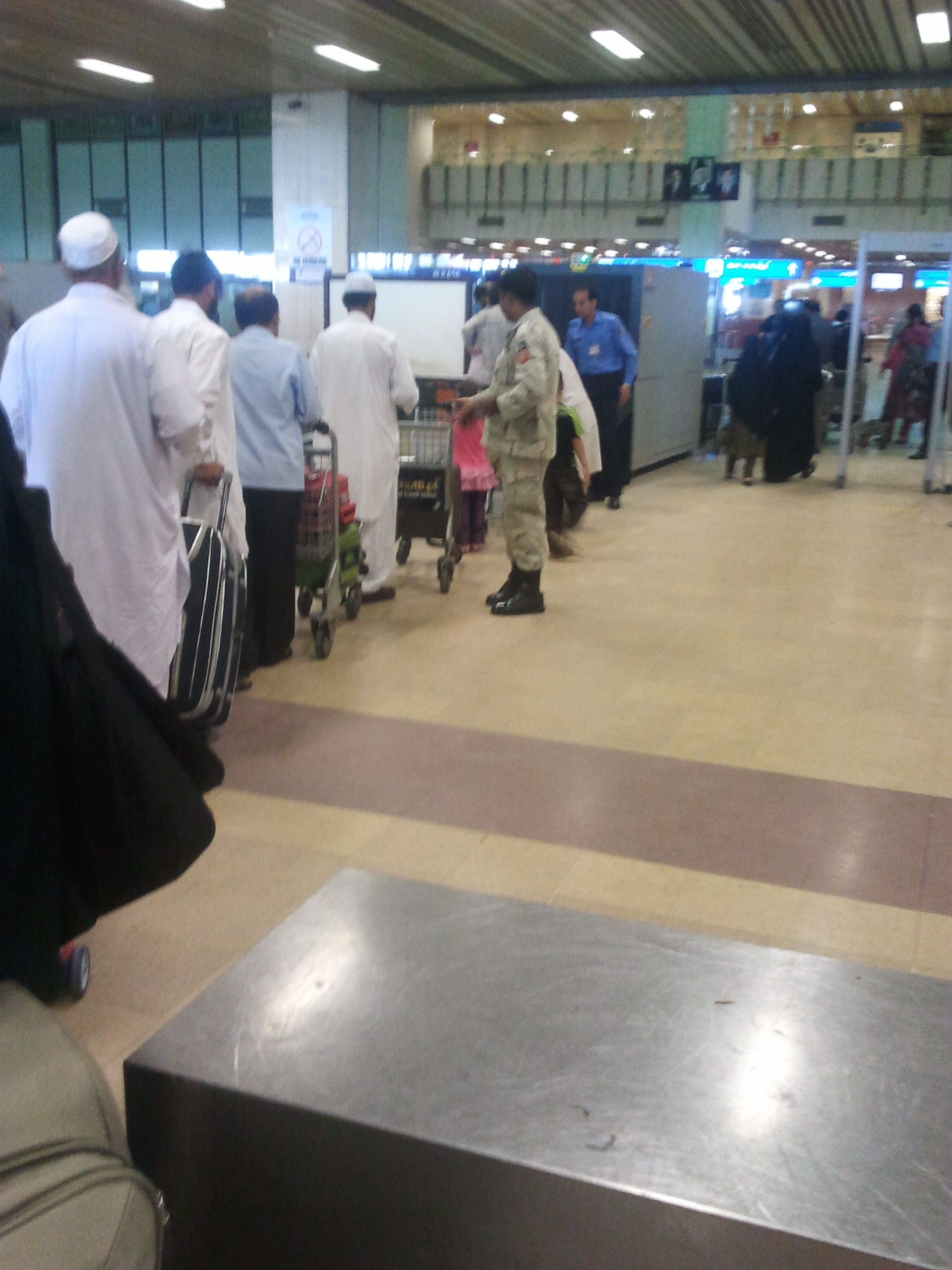|
Dil Jan Khan
Dil Jan Khan (Urdu: دل جان خان) (born November 11, 1934) is a former senior vice president of International Narcotics Control Board of the UN. Ethnically, he is a Marwat and was born in District Lakki Marwat of Pakistan. He joined Police Service of Pakistan on January 21, 1961. Dil Jan Khan has also worked as an Inspector General of Police and on a number of other important positions as Interior Secretary of Pakistan, Federal Secretary for State and Frontier Regions (SAFRON), and as commandant of the Frontier Constabulary. His cousin Abdul Majeed Khan Marwat was also commandant FC (Frontier Constabulary) in Khyber Pakhtunkhwa. Dil Jan Khan is currently the chairman of Dil Jan Foundation. Which was founded in 2005, with the sole purpose of alleviating the less fortunate. Education and career * Bachelor of Arts * Bachelor of Laws and Master of Arts in Political Science * Chairman Dil Jan Foundation (2006 - ) * Honorary Advisor to the Ministry of Interior, Government of Pa ... [...More Info...] [...Related Items...] OR: [Wikipedia] [Google] [Baidu] |
Federal Secretary
The federal secretary (also referred to as the secretary to the Government of Pakistan) is the highest-ranking position in the Government of Pakistan, occupied by the most senior civil servant in a specific ministry or division. The secretary is the administrative head of that ministry or division and oversees and enforces public policy matters. The authority for the creation of this post solely rests with the Cabinet of Pakistan. The position holder is a BPS-22 grade officer, usually belonging to the Pakistan Administrative Service. All promotions and appointments to this rank and post are directly made by the prime minister of Pakistan. The post of federal secretary is equivalent to that of chief secretary of a provincial government (within their respective provinces) and to the rank of General in the Pakistan Army, Air Marshal in the Pakistan Air Force, and Admiral in the Pakistan Navy. Due to the importance of their respective assignments, there are twelve specific federa ... [...More Info...] [...Related Items...] OR: [Wikipedia] [Google] [Baidu] |
Pashtun People
Pashtuns (, , ; ps, پښتانه, ), also known as Pakhtuns or Pathans, are an Iranian ethnic group who are native to the geographic region of Pashtunistan in the present-day countries of Afghanistan and Pakistan. They were historically referred to as Afghans () or xbc, αβγανο () until the 1970s, when the term's meaning officially evolved into that of a demonym for all residents of Afghanistan, including those outside of the Pashtun ethnicity. The group's native language is Pashto, an Iranian language in the Indo-Iranian branch of the Indo-European language family. Additionally, Dari Persian serves as the second language of Pashtuns in Afghanistan while those in the Indian subcontinent speak Urdu and Hindi (see Hindustani language) as their second language. Pashtuns are the 26th-largest ethnic group in the world, and the largest segmentary lineage society; there are an estimated 350–400 Pashtun tribes and clans with a variety of origin theories. The total popu ... [...More Info...] [...Related Items...] OR: [Wikipedia] [Google] [Baidu] |
Living People
Related categories * :Year of birth missing (living people) / :Year of birth unknown * :Date of birth missing (living people) / :Date of birth unknown * :Place of birth missing (living people) / :Place of birth unknown * :Year of death missing / :Year of death unknown * :Date of death missing / :Date of death unknown * :Place of death missing / :Place of death unknown * :Missing middle or first names See also * :Dead people * :Template:L, which generates this category or death years, and birth year and sort keys. : {{DEFAULTSORT:Living people 21st-century people People by status ... [...More Info...] [...Related Items...] OR: [Wikipedia] [Google] [Baidu] |
1934 Births
Events January–February * January 1 – The International Telecommunication Union, a specialist agency of the League of Nations, is established. * January 15 – The 8.0 Nepal–Bihar earthquake strikes Nepal and Bihar with a maximum Mercalli intensity of XI (''Extreme''), killing an estimated 6,000–10,700 people. * January 26 – A 10-year German–Polish declaration of non-aggression is signed by Nazi Germany and the Second Polish Republic. * January 30 ** In Nazi Germany, the political power of federal states such as Prussia is substantially abolished, by the "Law on the Reconstruction of the Reich" (''Gesetz über den Neuaufbau des Reiches''). ** Franklin D. Roosevelt, President of the United States, signs the Gold Reserve Act: all gold held in the Federal Reserve is to be surrendered to the United States Department of the Treasury; immediately following, the President raises the statutory gold price from US$20.67 per ounce to $35. * February 6 – F ... [...More Info...] [...Related Items...] OR: [Wikipedia] [Google] [Baidu] |
Bannu
Bannu ( ps, بنو, translit=banū ; ur, , translit=bannū̃, ) is a city located on the Kurram River in southern Khyber Pakhtunkhwa, Pakistan. It is the capital of Bannu Division. Bannu's residents are primarily members of the Banuchi tribe and speak Banuchi (Baniswola) dialect of Pashto which is similar to the distinct Waziristani dialect. Total 5 Tehsil in Bannu. The major industries of Bannu are cloth weaving, sugar mills and the manufacturing of cotton fabrics, machinery and equipment. It is famous for its weekly ''Jumma'' fair. The district forms a basin drained by the Kurram and Gambila (or Tochi) rivers. Etymology According to the philologist Michael Witzel, the city was originally known in Avestan as ''Varəna'', from which its modern name derives. The ancient Sanskrit grammarian, Pāṇini, recorded its name as ''Varṇu''. During the 6th century BCE, the basin around Bannu was known as ''Sattagydia'' ( Old Persian: 𐎰𐎫𐎦𐎢𐏁 ''Thataguš'', country of ... [...More Info...] [...Related Items...] OR: [Wikipedia] [Google] [Baidu] |
Khyber Pakhtunkhwa
Khyber Pakhtunkhwa (; ps, خېبر پښتونخوا; Urdu, Hindko: خیبر پختونخوا) commonly abbreviated as KP or KPK, is one of the Administrative units of Pakistan, four provinces of Pakistan. Located in the Geography of Pakistan, northwestern region of the country, Khyber Pakhtunkhwa is the smallest province of Pakistan by land area and the Demographics of Pakistan, third-largest province by population after Punjab, Pakistan, Punjab and Sindh. It shares land borders with the Pakistani provinces of Balochistan, Pakistan, Balochistan to the south, Punjab, Pakistan, Punjab to the south-east and province of Gilgit-Baltistan to the north and north-east, as well as Islamabad Capital Territory to the east, Azad Jammu and Kashmir, Autonomous Territory of Azad Jammu and Kashmir to the north-east. It shares an Durand Line, international border with Afghanistan to the west. Khyber Pakhtunkhwa is known as a tourist hot spot for adventurers and explorers and has a varied landsca ... [...More Info...] [...Related Items...] OR: [Wikipedia] [Google] [Baidu] |
Frontier Constabulary
The Frontier Constabulary ( ur, ) is a federal paramilitary force of Pakistan under the control of the Interior Secretary of Pakistan, which is largely drawn from Khyber Pakhtunkhwa province, but operates in several districts of Pakistan. It is responsible for maintaining law and order, and dealing with situations beyond the capabilities of the civilian Khyber Pakhtunkhwa Police. It also guards against tribal incursions, criminal gangs, and contraband smuggling. The Frontier Constabulary was created in 1915 by amalgamating the Border Military Police (formed in 1852) and Samana Rifles (formed in 1879), during the British Raj. Both of the forces were guarding the border between the tribal areas and the then-settled areas of the North-West Frontier Province (after which it is named). History The Frontier Constabulary was created as an independent Civil Armed Force, under the provisions of Frontier Constabulary Act, 1915. under this Act, Frontier Constabulary Rules 1958 were fr ... [...More Info...] [...Related Items...] OR: [Wikipedia] [Google] [Baidu] |
Interior Secretary Of Pakistan
The Interior Secretary of Pakistan (Urdu: ) is the Federal Secretary for the Ministry of Interior. As in-charge of the country's law and order machinery, the Interior Secretary is one of the most coveted and sensitive positions in the Government of Pakistan. The position holder is a BPS-22 grade officer, usually belonging to the Pakistan Administrative Service. Notable organisations that come under the control of the Interior Secretary includes the Federal Investigation Agency (FIA), National Database and Registration Authority (NADRA), Directorate General of Immigration & Passports (I&P) and the paramilitary forces namely Frontier Constabulary (FC) and Pakistan Rangers. The administration of the Islamabad Capital Territory is also under the Interior Secretary, as the Chief Commissioner Islamabad directly reports to the Interior Secretary. List of Interior Secretaries This table lists down the names of Interior Secretaries that have been in office since January 2001. See als ... [...More Info...] [...Related Items...] OR: [Wikipedia] [Google] [Baidu] |
International Narcotics Control Board
The International Narcotics Control Board (INCB) is an independent treaty body, one of the four treaty-mandated bodies under international drug control law (alongside the Commission on Narcotic Drugs, UNODC on behalf of the Secretary-General, and the WHO). The INCB is responsible for monitoring the control of substances pursuant to the three United Nations drug control conventions and for assisting Member States in their efforts to implement those conventions. It plays an important role in monitoring the production and trade of narcotics and psychotropics, as well as their availability for medical and scientific purposes, and in deciding which precursors should be regulated. History The Board has predecessors since the League of Nations. Following the 1909 Shanghai International Opium Commission, an International Opium Convention was adopted in 1925 and established the ''Permanent Central Opium Board'' (PCOB) which started its work in 1928. Later on, the 1931 Convention cre ... [...More Info...] [...Related Items...] OR: [Wikipedia] [Google] [Baidu] |
Inspector General Of Police
An Inspector General of Police is a senior police officer in the police force or police service of several nations. The rank usually refers to the head of a large regional command within a police service, and in many countries refers to the most senior officer of the entire national police. Bangladesh In Bangladesh, the Bangladesh Inspector General of Police heads the Bangladesh Police. Ghana In Ghana, Inspector General of Police is the title of the head of the Ghana Police Service. India During the British India era, the British Government introduced the Indian Councils Act 1861. The act created a new cadre of police, called Superior Police Services, later known as the Indian Imperial Police. The highest rank in the service was the Inspector General. Currently, in modern India, an Inspector General of Police (IGP) is only an officer from Indian Police Service. In a state, an IGP holds the third-highest rank in the hierarchy, just below the rank of Additional Director Gen ... [...More Info...] [...Related Items...] OR: [Wikipedia] [Google] [Baidu] |
Police Service Of Pakistan
Law enforcement in Pakistan ( ur, ) is one of the three main components of the criminal justice system of Pakistan, alongside the judiciary and the prisons. The country has a mix of federal, provincial and territorial police forces with both general and specialised functions, but the senior ranks of all the provincial forces and most of the federal ones are manned by members of the Police Service of Pakistan (PSP). The PSP is one of the most prestigious parts of the Central Superior Services, Pakistan's main civil service organisation. Federal law enforcement agencies are generally overseen by the Ministry of Interior of the Government of Pakistan, while provincial police forces are overseen by a department of the government of that province. Federal police agencies Some of the below agencies are part of the Civil Armed Forces, while others are law enforcement divisions of government departments. Not included is the Pakistan Army Corps of Military Police, which only has jurisdic ... [...More Info...] [...Related Items...] OR: [Wikipedia] [Google] [Baidu] |





